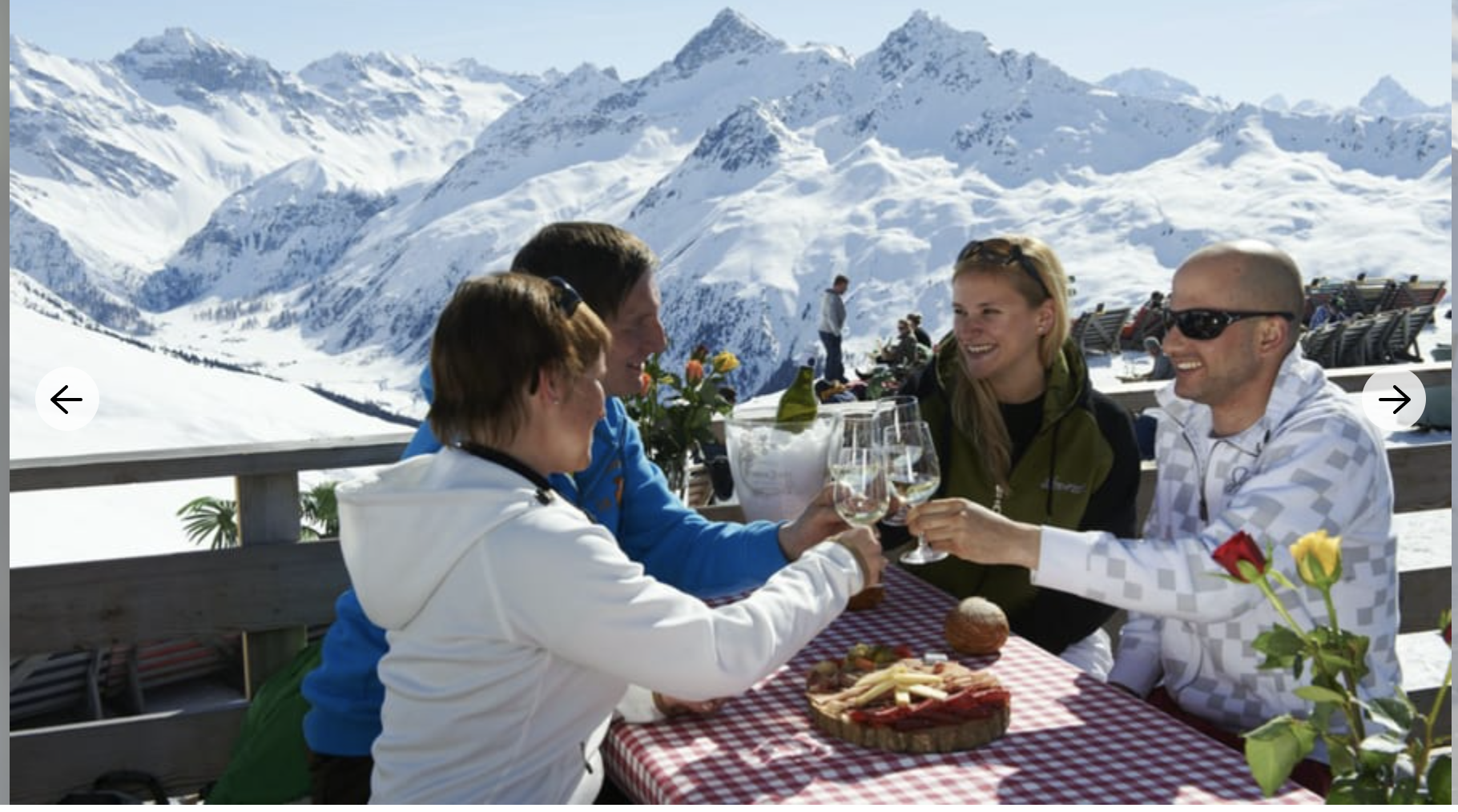Oh yes, make no mistake: they're coming for us
/“No berries for you!”
In many places around the world, grocery store produce aisles are a delightful array of colors, even in the depths of winter, when it feels like not much could grow outside.
But this year-round variety has a real cost on the planet, with a new study finding that 'food miles' account for 19 percent of all food emissions – three times more than previously thought.
Even worse, with only 12.5 percent of the world's population, high income countries generate 46 percent of the world's food-mile emissions.
….. Food transport alone contributes 3 gigatonnes of emissions annually – equivalent to 19 percent of all food-related emissions, including land use.
The researchers also looked at what would happen if everyone just ate locally. The team worked out that it would reduce food miles emissions by 0.27 gigatonnes (0.24 gigatonnes for high-income countries alone!), and food production emissions by 0.11 gigatonnes.
Unfortunately, eating entirely locally is unrealistic, as some places aren't able to grow their own food, but it gives a good suggestion of where we can go from here.
"We tend to interpret information around us in simplistic terms, like 'meat is bad and vegetables are good' but we wanted a much more comprehensive picture," University of Sydney nutritional ecologist David Raubenheime told The Guardian.
"Our study shows that in addition to shifting towards a plant-based diet, eating locally is ideal, especially in affluent countries," he added.
The researchers suggest that in this case, consumers have the most chance of causing widespread change. So, for those of us in high income countries, individually choosing the local or seasonal option is one of the best ways forward.
This is particularly important with fruit and vegetables, as they need to be refrigerated to be sent around the world, creating even more emissions.
[…..] The other issue is that many of us are now used to being able to buy avocados, asparagus, berries, and citrus at any time of year.
"One example is the habit of consumers in affluent countries demanding unseasonal foods year-round, which need to be transported from elsewhere," says Raubenheime.
"Eating local seasonal alternatives, as we have throughout most of the history of our species, [Back on the Road to Serfdom] will help provide a healthy planet for future generations."
You might be a little fuzzy with what fruits and vegetables are available in which seasons, so check out this link if you're in the US and want a refresher. There's other tips as well, like choosing frozen or canned vegetables when not in season, as these are able to be stored when they are most plentiful.
The day after 9/11, Peggy Noonan wrote an essay about the interconnected world we live in, and she marveled that “we can have strawberries in February”, and wondered how long that could last. I’m guessing another ten years, if we’re lucky.
ah, to the good life! Springtime in Davos
Of course, our betters will always be able to enjoy strawberries and asparagus and whatever fresh fruit, vegetables and meat they want, served to them in Davos by humble servants of the nomenklatur. And spekking of Davos, I highly recommend the new series of 18 essays to be published, once a week, in “the Pipeline” entitled “Against the Great Reset”
Excerpts from Part One of Eighteen are here:
Starting today, and continuing for the next 17 weeks, The Pipeline will present excerpts from each of the essays contained in Against the Great Reset: 18 Theses Contra the New World Order, to be published on October 18 by Bombardier Books and distributed by Simon and Schuster, and available now for pre-order at the links.
PART I: THE PROBLEM
Excerpt from the Introduction: "Reset This," by Michael Walsh
What is the Great Reset and why should we care? In the midst of a tumultuous medical-societal breakdown, likely engineered by the Chinese Communist Party and abetted by America’s National Institutes of Health “gain of function” financial assistance to the Wuhan Institute of Virology, why is the Swiss-based World Economic Forum (WEF) advocating a complete “re-imagining” of the Western world’s social, economic, and moral structures? And why now? What are its aspirations, prescriptions, and proscriptions, and how will it prospectively affect us? It’s a question that the men and women of the WEF are hoping you won’t ask.
This book seeks to supply the answers. It has ample historical precedents, from Demosthenes’s fulminations against Philip II of Macedon (Alexander’s father), Cicero’s Philippics denouncing Mark Antony, the heretic-hunting Tertullian’s Adversus Marcionem¸ and the philosopher Friedrich Nietzsche’s Nietzsche contra Wagner. Weighty historical issues are often best debated promptly, when something can yet be done about them; in the meantime, historians of the future can at least understand the issues as the participants themselves saw and experienced them. Whether the formerly free world of the Western democracies will succumb to the paternalistic totalitarianism of the oligarchical Resetters remains to be seen. But this is our attempt to stop it.
So great is mankind’s perpetual dissatisfaction with its present circumstances, whatever they may be, that the urge to make the world anew is as old as recorded history. Eve fell under the Serpent’s spell, and with the plucking of an apple, sought to improve her life in the Garden of Eden by becoming, in Milton’s words, “as Gods, Knowing both Good and Evil as they know.” The forbidden fruit was a gift she shared with Adam; how well that turned out has been the history of the human race ever since. High aspirations, disastrous results.
[…] It’s fitting that the “Great Reset of capitalism” is the brainchild of the WEF, which hosts an annual conference in the Alpine village of Davos—the site of the tuberculosis sanatorium to which the naïf Hans Castorp reports at the beginning of Thomas Mann’s masterpiece, The Magic Mountain. Planning to visit a sick cousin for three weeks, he ends up staying for seven years, “progressing” from healthy individual to patient himself as his perception of time slows and nearly stops. Castorp’s personal purgatory ends only when he rouses himself to leave—his Bildungsreise complete—upon the outbreak of World War I, in which we assume he will meet the death, random and senseless, that he has been so studiously avoiding yet simultaneously courting at the Berghof.
Central Europe, it seems, is where the internal contradictions of Western civilization are both born and, like Martin Luther at Eisleben, go home to die. And this is where the latest synthetic attempt to replace God with his conqueror, Man, has emerged: in the village of Davos, in the canton of Graubünden, Switzerland: the site of the annual meeting of the WEF led by the German-born engineer and economist Klaus Schwab, born in Ravensburg in 1938, the year before Hitler and Stalin began carving up Poland and the Baltics.
[…] At its heart, the Great Reset is a conceited and self-loathing central-European blitzkrieg against the cultural, intellectual, religious, artistic, physical, and, most of all, moral inheritance we have received from our Greco-Roman forebears. This has been latterly shorthanded, with the rise of “wokeness,” to “white” culture. Typically racialist, if not outright racist, the cultural Marxists behind wokeness insist on reducing humanity to its shades of skin color and then claiming that although all skin colors should achieve in exact same proportions to their share in a given population, some skin colors are better than others and any skin color is preferable to white. It’s a deeply repellent principle that masquerades as a perversion of Judeo-Christianity but is in fact a simultaneous attack on individuality and merit that seeks to roll back the scientific and cultural advances of the past two millennia, wielding both science and culture as weapons against our shared technological and moral heritage.
The goal, as always, is power—the eternal fixation of the socialist Left.


